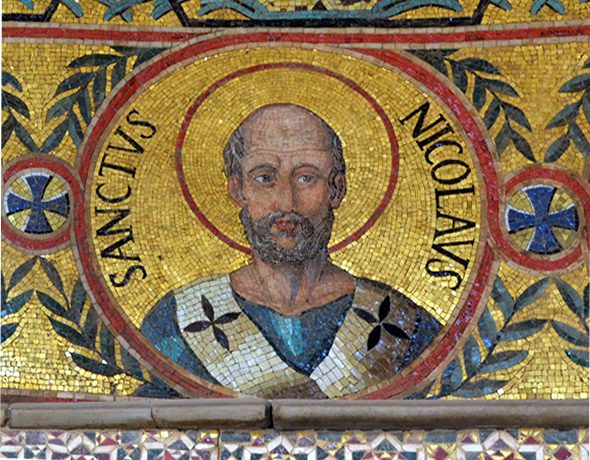
It’s Christmas time, so, of course the American Atheists have spread their cheery billboards across the country, urging that we all “celebrate an atheist Christmas” by skipping church.
You can view the 2016 billboards and the organization’s press release on their website. The first billboard shows a text message exchange between two young women in which one laughs at the idea of going to church, saying “I don’t believe that stuff anymore.” She adds that her parents, obviously churchgoers, will “get over it.” The second billboard is a parody on President-elect Donald Trump’s campaign slogan and declares, “Make Christmas Great Again: Skip Church!” The irony of both these denunciations appears to be lost on the American Atheists.
American Atheists’ President, David Silverman, says that this confrontational approach is necessary to fight “the stigma many atheists face.” Nick Fish, the group’s national program director adds that “the only way to remove the stigma is to show our friends and family that we are the same kind, loving and compassionate people they’ve always known us to be.”
But according to author and radio talk show host, Dennis Prager, on his internet-based Prager University, there is something more at work than erasing any supposed stigma of being an atheist at Christmas. The campaign to liberate people from church and religion at Christmas is all part of the secularization of Christmas. And the secularization of Christmas is very important to the secularists.
“That is why so much effort is devoted to substituting other words for Christmas,” says Prager. He adds that the “opponents of ‘Merry Christmas’ and other uses of the word Christmas know exactly what they are doing. They are disingenuous when they dismiss defenders of ‘Merry Christmas’ as fabricating some ‘war on Christmas.'”
“Of course it is a war on Christmas!” Prager, who is Jewish and loves Christmas, exclaims. “Or more precisely,” he says, “a war on the religious nature of America.” In his five minutes of insightful analysis, Prager explains why those such as the American Atheists and their “Skip Church” campaign want to secularize Christmas. “It is a blatant reminder of just how religious America is and always has been.” But the hostility, of erasing the celebration of Christ’s birth from Christmas, is masked with calls for inclusivity, sensitivity, and ending “stigmas.”
At least in this year’s billboards the American Atheists did not presume to act as a mouthpiece for Santa Claus! Some years ago I wrote an article for American Spectator about how the American Atheists’ cohorts, the American Humanist Association, in addition to launching a “National Godless Holiday Campaign,” attempted to bring Santa into the mix. In mid-November 2008, ads began appearing on Washington, D.C. area Metro buses and ran through December. The ads featured a strange Santa-garbed person with Rastafarian braids. They also included the admonition from the familiar Christmas song “Santa Claus is Coming to Town” to be “good for goodness’ sake,” because “humanists have always understood that you don’t need a god to be good.”
Today is St. Nicholas Day, the feast day of the Bishop who came to be known as Santa Claus. In addition to being remembered for his generosity and compassion to the poor and to children, Bishop Nicholas was the kind of “muscular Christian” that makes the folks at the National Council of Churches shudder. He was a staunch defender of Christian orthodox, to the point of getting thrown in the clink for a few days after smacking Arius, a heretical priest.
What would Santa think of AHA’s earlier attempt to identify him with their Advent attack? Even the Santa portrayed in the lyrics of Gene Autry, who is not exactly remembered for his theological prowess, is said to “know that we are all God’s children.” What would Bishop Nicholas think of this year’s American Atheists crusade to separate people from church, and from Christ, at Christmas?
Bishop Nicholas might well deal with the American Humanist Association in the same manner in which he dispatched poor Arius, but probably, being older and wiser, and “good, for goodness sake,” he would refrain from physical violence and just urge those who believe in God to assert their right to believe, and to flaunt their belief as publicly as AHA flaunts its unbelief.
And being on the other side of Eternity, and knowing the joy that awaits those who put their trust in Christ, he would weep for those seduced by the calls to turn their backs on church at Christmas, especially those who may only darken the door of a church once or twice a year. He would pray for God’s grace to touch their hearts, and to touch the wounded hearts of those that are so afraid of the Incarnate God.
















